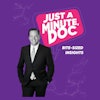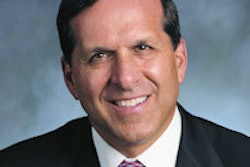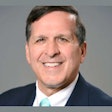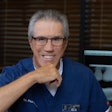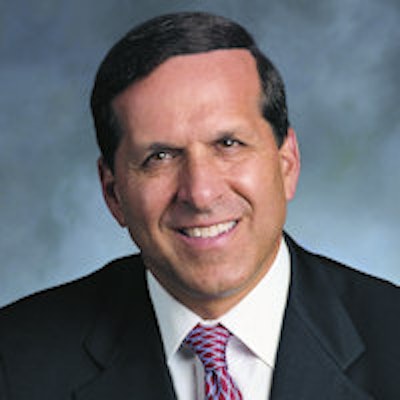
In his recent book, What Dentists Can Learn from Top CEOs, Dr. Roger P. Levin describes a wide range of effective techniques used by corporate leaders and explains how these approaches can be applied successfully in dental practices. Following is an excerpt from the chapter entitled "CEOs Are Team Builders."
Whether you are the CEO of a Fortune 500 company or a dental practice, you must know how to build a team and constantly upgrade the members' capabilities.
 Roger P. Levin, DDS, chairman and CEO of practice management consulting firm Levin Group.
Roger P. Levin, DDS, chairman and CEO of practice management consulting firm Levin Group.Most CEOs in the business world learned early in their careers that they could not do it all alone. As they worked their way up the corporate ladder, getting training, mentoring, coaching, and hands-on experience along the way, they saw how teams functioned -- and how leaders relied on their teams to extend their power.
The corporate CEO's team consists of highly paid executive vice presidents, senior vice presidents, and vice presidents -- all of whom are seasoned executives with expensive degrees, extensive managerial experience, and a burning desire to have the CEO's job some day.
It's very different in a dental office. Most dentists have become CEOs simply because they are practice owners. They bring little business training or experience to the position. Having worked independently to get through dental school and become dentists, they often continue in that frame of mind. Feeling total responsibility for everything that occurs in their practice, they tend to be micromanagers.
In my experience with thousands of dentist CEOs and quite a few corporate CEOs in many industries, I have heard the same basic complaints from both type -- their teams do not perform at the desired level, there's too much turnover, it's hard to find good people, and so on.
In short, team building is a tough job whether you're running a gigantic multinational conglomerate or a friendly neighborhood dental practice. However, because they have experience as members of teams and as leaders of teams, corporate CEOs know much more about teams than dentists. In order to position their practices for greater success, dentists should look to the corporate world to learn the value of having an excellent team and the techniques for building it.
The special challenges dentists face as CEOs
In some respects, the leader of a dental practice has a tougher job than a corporate CEO. There are two major challenges:
 What Dentists Can Learn From Top CEOs by Dr. Roger Levin.
What Dentists Can Learn From Top CEOs by Dr. Roger Levin.The first challenge is that you're on your own. A Fortune 500 CEO gets constant input and advice from a number of direct executive reports. In contrast, the dentist has sole responsibility when there are executive decisions to be made. As the practice CEO, he or she will structure the business, assemble and train the team, equip the office, implement operating systems, and track results. Not only that, unlike a corporate executive, the dentist has no one on staff who can serve as a sounding board or advisor on high-level decisions that must be made.
The second is that you don't have time. Unlike those CEOs, the dentist has very little time to devote to practice management. A practice will never grow to anywhere near its potential if the dentist fails to delegate all nonclinical responsibilities -- with the exception of major decision-making -- to staff members. Even if a dentist had excellent managerial skills (highly unlikely), it would not justify turning away from chairside patient care. Practice management must be relegated to a very small fraction of the day.
No team is perfect, and micromanagement is not the answer
Whether a practice team has been in place for 20 days or 20 years, there will be mistakes, complaints and, generally, a failure to perform perfectly. No matter how long and hard you try to put together a perfect team, you will be disappointed. Staff management is an ongoing process with no fixed end point. Fortunately, if you accept that fact and focus on proven team-building methods, you can achieve great results.
For practices to succeed, dentists should spend approximately 98% of their day providing patient care. The dentist is the primary producer of the practice, so anything that takes away from productive, clinical time reduces practice income.
Initially, dentists may not feel comfortable relying on staff members to perform virtually all nonclinical, administrative functions in the practice, but it is essential that they move beyond this attitude and emulate the corporate CEO. In my experience, many dentists actually take on moreof the nonclinical work in the practice over the years, not less. Given the nature and background of most dentists, building the right kind of team and using it effectively is a difficult transition to make. However, it is worth bearing in mind that micro-managing achieves micro-results.
Roger P. Levin, DDS, is the chairman and CEO of practice management consulting firm Levin Group.
Special for DrBicuspid.com members
Order What Dentists Can Learn from Top CEOs today and receive a $100 discount when you use code LG13100.
The comments and observations expressed herein do not necessarily reflect the opinions of DrBicuspid.com, nor should they be construed as an endorsement or admonishment of any particular idea, vendor, or organization.
Copyright © 2015, Levin Group, Inc. Reprinted with permission.

